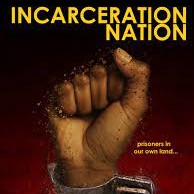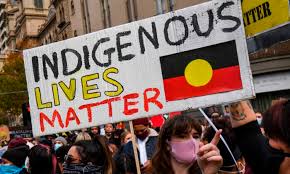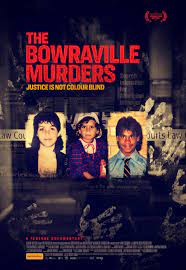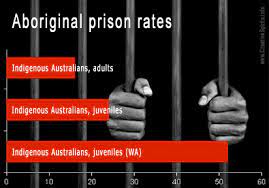Australian conscience: Australian Black Lives Matter

The Chevalier Family has had connections with indigenous communities for over 100 years, especially in the Northern Territory. We are committed to the raising of awareness of racism, of deaths in custody, of the current need for vaccination of aboriginal communities, of the situation in Wilcannia.
Two recent documentaries offer a strong opportunity – for each of us to watch, for use in groups in parishes, schools…

The first (on SBS/NTIV on demand. The title is an indictment: Incarceration Nation, taking up the theme of aboriginal deaths in custody, looking back to the enquiry into black deaths of the early 1990s, the recommendations, the recommendations not being followed, further judicial investigations, the investigation into Don Dale Youth Detention Centre in the Northern Territory. And, there are the dreadful statistics of the number of deaths, out of all proportions compared with white deaths in custody even in recent years.
The advantage of documentary is that it can draw on film and television footage from the last three decades, reminding audiences of the progress, and lack of progress, the nature of the deaths in custody, the reasons, the often seeming apathy of those in charge and responsible, and alarming moments of cruelty and indifference. The main episodes featured, especially through surveillance footage on the actual events, are a challenge to any sense of decency.
Most documentaries depend on the impact that the “talking heads” make. There is a wide variety of men and women who have been invited to contribute, from all walks of life, including Commissioner Mick Gooda, former Redfern boy, Keenan Mundine, who served time, all challenging in their observations, and there pleas for betterment.

The second is The Bowraville Murders, for cinema release when possible, then on SBS
Here are crimes that have been investigated over a period of 30 years, from 1990. This film takes us through the ensuing years, investigations, police inadequacies, child protection visits, re-examinations, the move towards justice issues in the New South Wales police department and the New South Wales government. Those familiar with the story will know the outcomes, or lack of outcomes. Those not familiar with the story will be amazed at how this process has played out over the three decades and be dismayed with the ending. It can be said that justice has not been done or seen to be done – but, in terms of action, solidarity, protest, the Bowraville murders, their victims, have become a significant cause.
One of the dramatic advantages for this documentary is that there is quite a lot of footage from the 1990s as well as the processes during the decades, pictures of members of the family, parents, siblings, aunties, their reactions and then, seeing them over the years, getting older, up to the 2010s, hearing them, sharing their feelings, sadness, frustrations, being both encouraged and discouraged.
Throughout the film, journalist Stan Grant sits in the cinema, watches scenes of aboriginal history, listens to townspeople interviewed about the aborigines, little girls at school saying they don’t mix with them. Grant, as always, offers a perspective on long aboriginal history, of the presence of white settlers, invasion, killings – “the killings never stop”.
